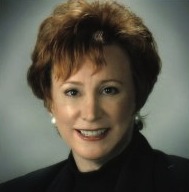Interview with Chere Estrin, Estrin Legal Staffing CEO and Co-Founder of the Organization of Legal Professionals
We recently had the great fortune to interview Chere Estrin, a paralegal turned author and CEO in Los Angeles, California. Chere has worked in the field for more than 20 years, leveraging her career in different arenas. During our interview, she shared anecdotes attesting to the diversity of her professional experience, and provided sage recommendations for paralegals new to the field. She also articulated what it is about the industry that she finds the most rewarding.
 What led you to enter the paralegal field almost twenty years ago?
What led you to enter the paralegal field almost twenty years ago?
I’m one of those folks who “fell into it.” I don’t know anyone at all who said that when they grow up, they want to be a paralegal. That’s like saying, “when I grow up, I want to be an actuary.”
Actually, I owned a theatre company in New York City and then Seattle. I was on the road almost 40 weeks out of 52. I was driving down a residential street one day and saw all these Christmas trees in the windows of homes and knew I wanted to settle down. I had had a little experience as a temp legal secretary. An agency sent me to this law firm and the administrator had seen one of my shows, Manhattan Reach. He hired me right then. This is a true story.
What have you most enjoyed about working in the paralegal industry?
The level of intelligence of the community; the loyalty; the “litigation high”; and how the community will support you.
What prompted you to open your own paralegal temp businesses?
I had literally capped out salary wise in Los Angeles as a paralegal administrator, one of the first. Working first as a paralegal manager in a top 10-entertainment firm (I leveraged my skills from producing and directing a theatre company) and moving to a national major firm, I was in charge of all specialties and between 50-60 paralegals, not including temps. There was only one firm paying a paralegal manager’s salary that was higher than mine, according to the surveys. Obviously, I had hit a ceiling. I spent a year (while working as a paralegal manager) concentrating on the areas of the job I enjoyed the most and getting my name out in the community: writing articles, speaking engagements, involvement in the community; putting my name on each ad to contact me when I was recruiting for a position. I was also a co-founder of IPMA – the International Paralegal Management Association (there were eight of us around the country).
Once I opened the temp business, I enjoyed the thrill of seeing paralegals get the jobs they really wanted. I made good contacts that have carried me through my entire career. Networking, I think it’s called. I ended up owning three offices that I eventually sold to a $5 billion dollar company. As head of this $80 million division, I was in charge of 14 offices and reported directly to the CEO. Today, I run two companies, Organization of Legal Professionals and Paralegal Knowledge Institute and publish two e-magazines including KNOW, the Magazine for Paralegals. Both companies provide continuing legal education. I absolutely love what I do and to this day, I am still leveraging my paralegal career.
Can you give us an example of an interesting case or project that you have worked on and your role in helping to achieve a positive outcome?
As an educator, some of my most fun and interesting projects are the seminars and teaching that I do. I see the lights go on. I may meet someone I taught at a seminar five, ten, even 15 years ago. Just the other day, I ran into the head of a local paralegal school. I had placed her in her first paralegal job years ago. At that time, no one would hire her because she had a J.D. but did not want to practice. She told me, “You taught me not to personalize something that may have been handed down from the Executive Committee and to remember that I have no way of knowing what goes on in the boardroom. I have always remembered that.”
Another interesting aspect of my position is that a major, top ten law firm came to the Paralegal Knowledge Institute and asked us to train eDiscovery to all of their litigation paralegals. There were 80 paralegals from around the world, including Europe and Asia. We customized and tailored an online, interactive training program for the firm. It’s been fun, energizing and informative, and a very successful project.
You have written ten books in the paralegal field, as well as countless articles. What advice would you give to those who are just starting their paralegal careers?
This is my advice to entry-levels: Seek a job in the specialty that attracts you. It may not always be possible, and going too far out without a job will make you less marketable. Where do you compromise? You must set that at the beginning of your job search.
After you get a position, plan out the next year. Position yourself to move up the ladder in terms of skills. Employers today pay higher salaries for more knowledge, not necessarily years in the field. It’s a pay-for-performance concept today.
Keep up your continuing legal education, even if you are in a state that does not have mandatory requirements. You are what you know. That’s how attorneys think. Always follow the mindset.
We thank Chere for sharing her vast knowledge about the industry. To connect with her, follow her on Twitter @estrin and on LinkedIn.
